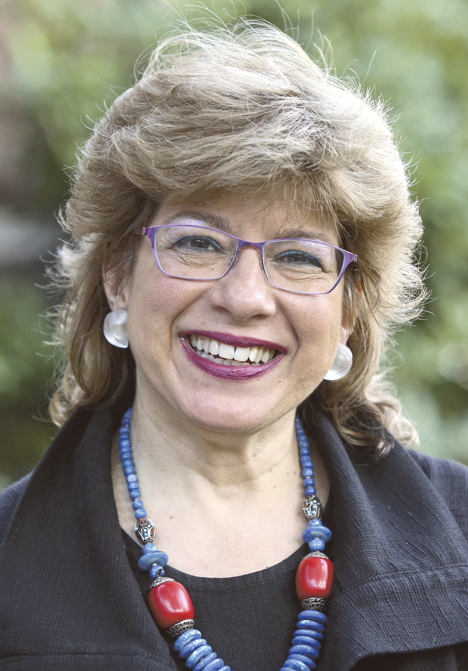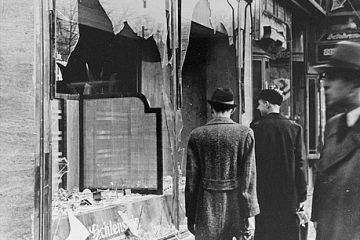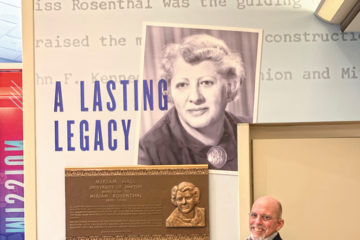Susannah Heschel to lecture at UD, Sept. 26

By Marshall Weiss, The Observer
If your tradition at Passover is to include an orange on your Seder plate, you have Dr. Susannah Heschel to thank.
More than 30 years ago, Heschel first added the orange, to champion inclusion of gays, lesbians, and all Jews who are marginalized.
Heschel, chair of the Jewish studies program at Dartmouth College, will present the lecture, The Many Facets of Prophetic Politics in Modern Jewish Thought, at 4 p.m. on Tuesday, Sept. 26 at the University of Dayton. Her lecture is presented by the University Professor of Faith and Culture, the Gudorf Chair in Catholic Theology and Culture, the University of Dayton Department of Religious Studies, and the College of Arts and Science.
A scholar of Jewish feminism, Jewish views of Islam, Nazi Germany, and the intersection of Jewish and Christian biblical scholarship in Germany of the 19th and 20th centuries, Heschel is the daughter of the late theologian and scholar Rabbi Abraham Joshua Heschel.
“I was very close to my father. He was a wonderful father. Very engaged, very involved,” Heschel says. “I’m an only child, and I went everywhere with my parents.”
Heschel’s parents met in Cincinnati. Her mother, Sylvia Straus, a concert pianist from Cleveland, had moved to Cincinnati to follow her teacher. Heschel’s father had fled Nazi Europe with the help of Hebrew Union College President Julian Morgenstern, and taught at HUC in Cincinnati before joining the faculty of Jewish Theological Seminary in New York in 1946.
“I grew up in a deeply religious, a rather conservative and old-fashioned environment,” says Heschel, who adds that she wasn’t one to rebel against her family’s religious and scholarly legacy.
“One of the questions was whether I could wear loafers. I wanted to wear loafers instead of solid shoes. But beyond that, not really, no. I was especially interested in things that were Jewish. Typical teenagers like rock music, but I didn’t. Although my parents didn’t want me to listen to rock music, I didn’t want to, either.”
She says her mother gave her a love of classical music.
“My mother had piano trios, piano quartets at our home all the time. And I loved that.”
Her father died when she was a teenager. From him, she says, she learned everything — “How to think, how to feel, how to be a mensch, how to be Jewish.”
Over the years, Heschel has translated and published several of her father’s writings. His life’s work and experiences have inspired her own.
Her 1998 book, Abraham Geiger and the Jewish Jesus, won a National Jewish Book Award for Jewish-Christian Relations.
A German rabbi of the 19th century, Geiger was the founder of Reform Judaism; he made the scholarly case that Jesus was a Pharisee and taught nothing original, a position that infuriated German Protestant theologians of the time.
Heschel says she first learned about Geiger from her father when she was a child.
In her 2008 book, The Aryan Jesus: Christian Theologians and the Bible in Nazi Germany, she writes about German Protestant theologians in Nazi Germany who redefined Jesus as an Aryan, and who in 1939 established the Institute for the Study and Eradication of Jewish Influence on German Religious Life.
The Aryan Jesus uncovers the Nazi affiliations of German Christian theologians whom her father knew personally or whose work he had read.
“When I was growing up, my father’s friends were all European Jewish refugee scholars, and the book that was most frequently discussed was a book by Max Weinreich called Hitler’s Professors. Everyone was talking about this or that professor, scholars whose books they had read who had become a Nazi.”
At present, Heschel is writing an article on the impact of World War I on German biblical scholarship about the prophets.
“The general tendency of scholarship from the 19th century well into the 20th century was to look at the prophets as ecstatics, people who were having a state of ecstasy,” Heschel says. “It was that issue that dominated the scholarship to the point that the actual teachings of the prophets — the ethical teachings, the teachings against war crimes, the universalism of the prophets — were issues they ignored, so that the emphasis on ecstasy overrode the lessons they might have learned from the prophets during the First World War.”
Dr. Susannah Heschel will deliver a lecture at 4 p.m. on Tuesday, Sept. 26 in Sears Recital Hall, first floor of the Jesse Philips Humanities Center, on the University of Dayton campus. The program is free and open to the community.
CORRECTION: In the print edition of the September 2017 Dayton Jewish Observer, Heschel’s lecture was incorrectly listed as a University of Dayton Gutmann Lecture in Jewish Studies.
To read the complete September 2017 Dayton Jewish Observer, click here.





